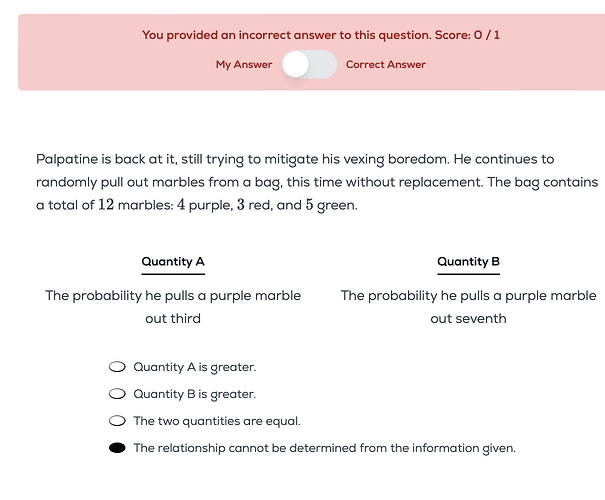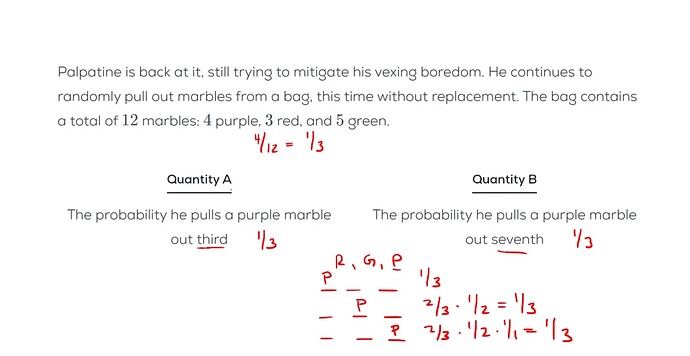I am confused about question 2, as Greg uses an example with an even probability to illustrate a case where the probability is uneven.
My approach:
Since marbles are drawn without replacement, each draw changes the composition of the remaining marbles, which affects the probabilities of subsequent draws.
-
For the third draw (Quantity A) and the seventh draw (Quantity B), the probability of pulling a purple marble depends on the outcomes of all prior draws.
-
If several purple marbles are drawn early, the probability of pulling a purple marble later (by the seventh draw) decreases. Conversely, if few or no purple marbles are drawn in the early pulls, the probability of pulling a purple marble later increases.
Since we do not know the outcomes of the previous draws in either case, we cannot determine whether Quantity A or Quantity B is greater, or if they are equal. Thus, the relationship cannot be determined

